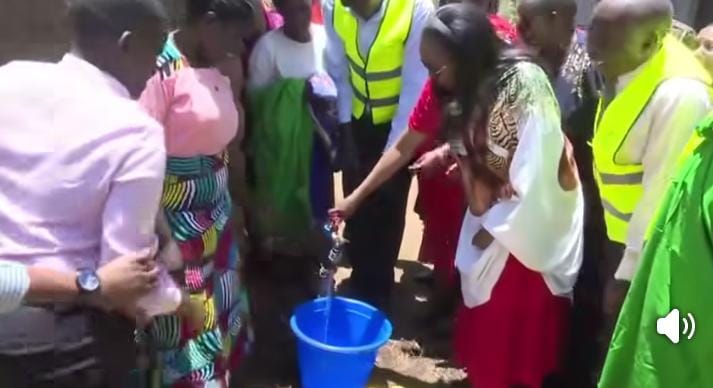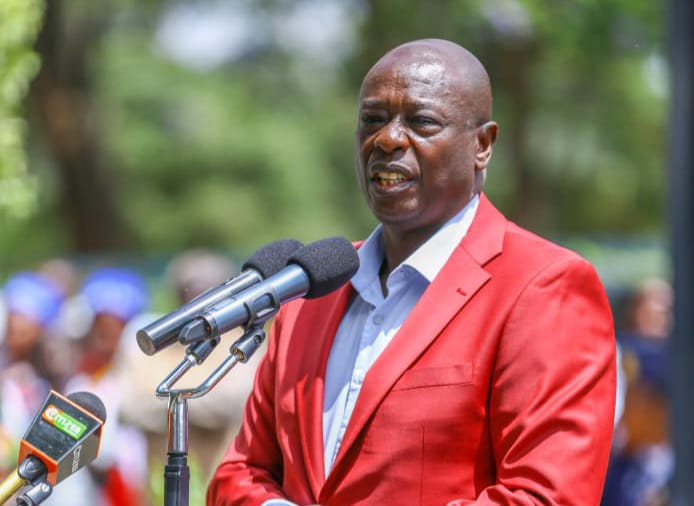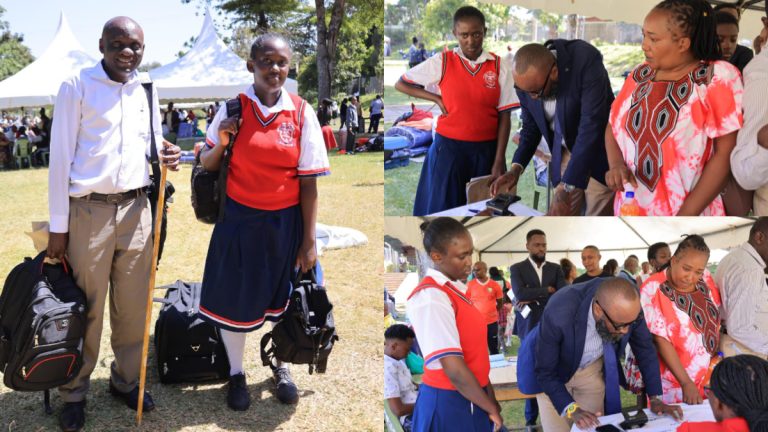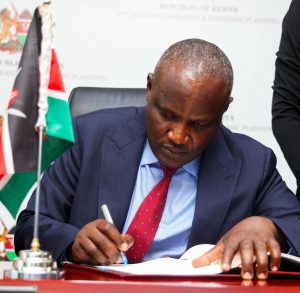Nakuru Governor Susan Kihika has laughed off criticism following the resurfacing of an old video clip showing her allegedly commissioning a dry water tap.
The governor, who has been on the receiving end of social media backlash, dismissed the claims as recycled propaganda meant to tarnish her image.
“What is this foolery mko nayo ati launching a dry tap? Propaganda ya two years ago mumeamsha tena? Hamchoki? Yenyewe an idle mind is whose workshop?” Kihika posed on her official social media page.
She went on to clarify that during the original event, the tap was functional but she struggled to operate it initially.
“For the record, it wasn’t a dry tap, I just couldn’t seem to operate it at first, but I guess the agenda must agend!” she added.
The viral clip has reignited debate online, with critics claiming the county administration is staging ‘cosmetic projects’, while her supporters have dismissed the uproar as politically instigated.
This is not the first time governors have faced scrutiny over project launches, with social media amplifying public doubts over the authenticity and sustainability of some initiatives.
Auditor General Nancy Gathungu recently flagged more than 20 counties over questionable allocation of funds for specific projects.
Gathungu noted that millions of shillings have been lost to mismanagement, raising serious concerns over whether taxpayers are getting value for their money.
In her report for the financial year ending June 2024, Gathungu cited misallocations, resource wastage, lack of value for money, and loss of public funds, issues that have hindered development programmes.
In some other instances, the governors have come under scrutiny over the allocation of millions for ghost projects in their counties.
According to the OAG, such practices threaten economic growth and undermine the sustainability of service delivery to citizens.
“Despite repeated reports indicating a lack of accountability and insufficient documentation to justify the use of public resources, the failure to enforce sanctions has led to some accounting officers evading responsibility,” the report states.
Kihika has, however, remained upbeat, insisting that her county’s track record on resource allocation and service delivery speaks for itself.
Council of Governors (COG) chairperson Ahmed Abdullahi has also come to the defence of the county chiefs.
He expressed concerns over what he termed as unequal treatment of county governments by oversight institutions.
He said that while both the two levels of governments, county and national, face accountability challenges, counties are often subjected to stricter scrutiny, creating a perception of bias.
by FELIX KIPKEMOI













